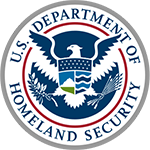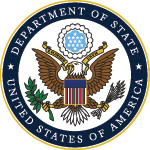While utility energy service contracts (UESCs) have been historically considered a tool for simply improving energy and water efficiency, the ability to leverage savings from short-payback energy conservation measures (ECMs), in combination with appropriations, enables agencies to make large, comprehensive investments toward improving resilience at federal sites. When a UESC is not an option, there are other mechanisms that can be used to partner with utilities to enhance resilience. During this training, FEMP discusses common resilience solutions that can be implemented through working with utilities and provides an overview of several utility partnership options. Attendees will hear about UESC and other case studies focused on improving resilience through energy efficiency, renewables, and other on-site energy systems. Attendees will learn best practices for achieving resilience through utility partnerships, including how to maximize available funding, strategies for capturing savings, and ways of bundling resilience measures with traditional ECMs.
Instructors
Katy Christiansen, Project Manager, National Renewable Energy Laboratory Read Bio
Katy Christiansen is a project manager in the Project Development and Finance Advisory Group at NREL leading resilience and sustainability efforts. Katy's area of expertise includes strategic planning, project development, and analysis for the defense, federal, utility, and non-profit sectors. Her current focus is in resilience analysis for complex organizations and best practices for developing advanced infrastructure systems.
Ethan Epstein, Program Manager, Federal Energy Management Program Read Bio
Epstein, U.S. Department of Energy, Federal Energy Management Program Ethan Epstein is the Program Manager and Technical Lead for the Federal Energy Management Program's (FEMP) resilience program. At FEMP, Ethan works with both the National Renewable Energy Laboratory (NREL) and the Pacific Northwest National Laboratory (PNNL) to provide federal facilities with technical assistance and develop resources and tools focused around energy/water resilience and climate change. This includes developing strategies to integrate various programmatic efforts including but not limited to climate adaptation, mitigation and resilience, decarbonization, resilience quantification, and resilience planning.
Chandra Shah, B.S. Mechanical Engineering, MBA, CEM, Senior Project Leader, National Renewable Energy Laboratory (NREL) Read Bio
Chandra Shah is a senior project leader at the National Renewable Energy Laboratory (NREL). She has been supporting the Federal Energy Management Program (FEMP) since 1998--helping agencies purchase off-site renewable energy, implement distributed energy projects, and achieve energy/water goals through utility energy service contracts (UESC) and other utility partnerships. Chandra is a co-author of the ESPC ESA Toolkit and other ESPC ESA templates. She is a CEM and holds an M.B.A. from the University of Washington and a B.S. in mechanical engineering from the University of Michigan.
Jeff Gingrich, Project Manager
Instructor Organization: National Renewable Energy Laboratory Read Bio
Jeff is a project manager specializing in project development and finance at NREL. Since joining NREL in 2019, his work has focused on supporting the FEMP Utility Program with efforts to expand the use of performance contracting across the federal government, helping federal agencies achieve energy goals through the implementation of Utility Energy Service Contracts (UESCs). In addition to advising agencies on project development requirements and best practices, Jeff oversees the development of training and resources to equip agencies with the tools needed to successfully execute projects.
Learning Objectives
Upon completion of this course, attendees will be able to:
- Recognize the importance of resilience for federal sites;
- Identify common resilience solutions and methods to partner with serving utilities to implement resilience measures;
- Identify specific examples of projects with utilities that have successfully implemented resilience measures;
- Recognize the types of allowable savings for UESCs that can be applied to resilience measures.









